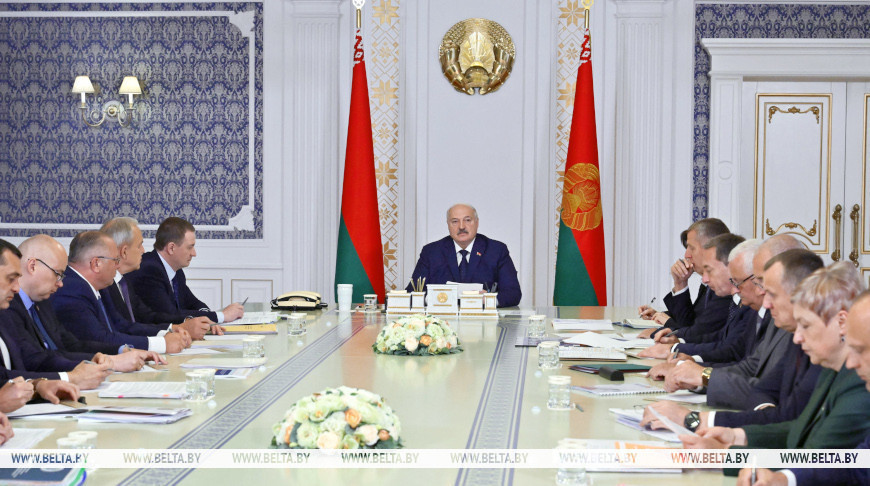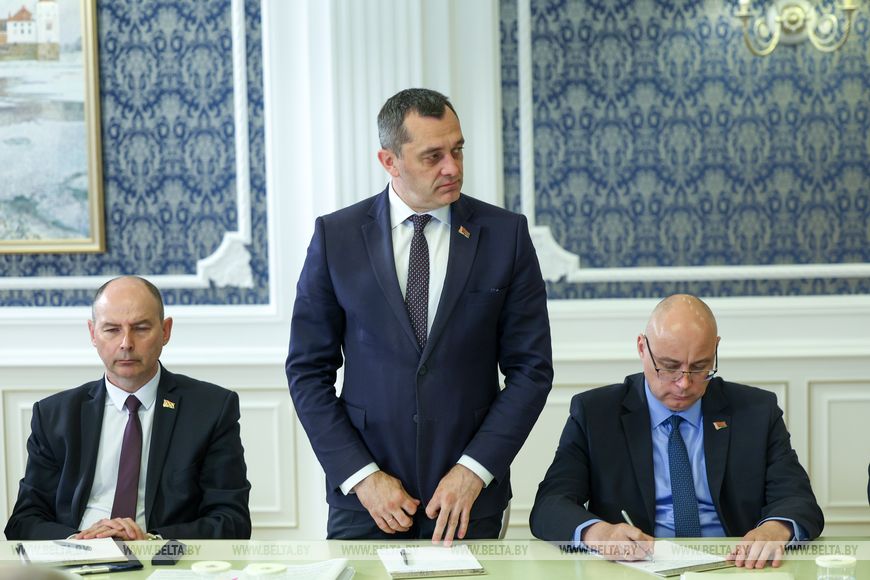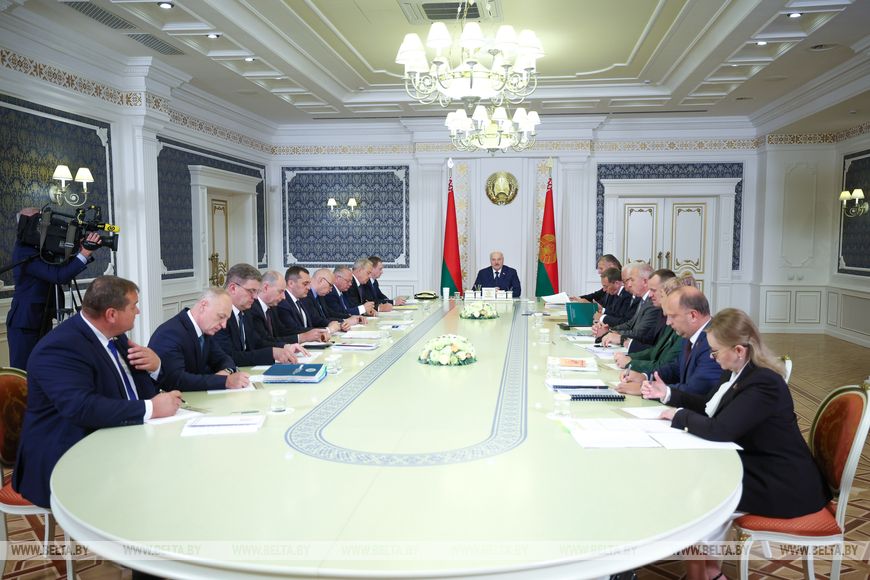
MINSK, 26 August (BelTA) – The kindergarten in the agro-town of Gorshchevshchina, Tolochin District, Vitebsk Oblast, will continue to operate. Earlier, local residents had appealed to the head of state via social media with a request not to close the institution, even though very few children attend it. The matter was thoroughly studied and a decision was ultimately made to preserve this kindergarten, BelTA learned from Vitebsk Oblast Governor Aleksandr Subbotin.
The governor explained that local authorities, together with the Education Ministry, regularly optimize institutions. This is also driven by economic feasibility: if the number of students becomes very small, maintaining a school, for example, becomes too costly. It is more efficient to organize transportation for children to neighboring settlements. For instance, in Vitebsk Oblast this year, 15 kindergartens and about 7 schools were closed in this manner. A similar approach is used across the country. However, many factors are taken into account, including the interests of children and parents, which are always considered. Strict requirements have been established for making such decisions.

Aleksandr Lukashenko learned about this appeal and instructed to thoroughly examine the situation. The head of state cited the story of this kindergarten at a meeting on the efficiency of the national retail system as an example of how thorough the approach to optimizing socially significant facilities in rural areas should be. “Will a milkmaid take three- or four-year-old children to a kindergarten 7–10 km away?” the head of state asked. “Have you lost your minds? Can’t you see that? Send your own grandson or a four-year-old child to a kindergarten far away! Unbelievable!”

After another look at the issue of the Gorshchevshchina kindergarten, it was decided to keep it. “The president demands a more thorough approach to every case,” Aleksandr Subbotin emphasized. “After all, we are fighting for personnel policy in rural areas, and if there are people working there, we must make exceptions and preserve [institutions]. This case is illustrative. And the kindergarten will continue to operate no matter what. Although 21 children from this same village are taken to a school in a neighboring village. Therefore, at the very least, the kindergarten will be in this village, and the school in the neighboring one, to preserve these settlements.”
The governor explained that local authorities, together with the Education Ministry, regularly optimize institutions. This is also driven by economic feasibility: if the number of students becomes very small, maintaining a school, for example, becomes too costly. It is more efficient to organize transportation for children to neighboring settlements. For instance, in Vitebsk Oblast this year, 15 kindergartens and about 7 schools were closed in this manner. A similar approach is used across the country. However, many factors are taken into account, including the interests of children and parents, which are always considered. Strict requirements have been established for making such decisions.

In the case of the agro-town of Gorshchevshchina, the situation was similar. In addition to the very low number of children in the kindergarten, the condition of the building was not satisfactory and required renovation. Therefore, local authorities and the Education Ministry initially made a decision that seemed well-considered at first glance – to organize transportation for the children to another settlement. But this decision did not suit the parents at all, and they appealed to the president via TikTok.
Aleksandr Lukashenko learned about this appeal and instructed to thoroughly examine the situation. The head of state cited the story of this kindergarten at a meeting on the efficiency of the national retail system as an example of how thorough the approach to optimizing socially significant facilities in rural areas should be. “Will a milkmaid take three- or four-year-old children to a kindergarten 7–10 km away?” the head of state asked. “Have you lost your minds? Can’t you see that? Send your own grandson or a four-year-old child to a kindergarten far away! Unbelievable!”

While transporting schoolchildren is an absolutely reasonable and correct approach, transporting very young children of kindergarten age is a completely different matter. And every parent understands the president's stance on this issue. Speaking of parents, in this case, they are mostly employees of the local agricultural organization, sought-after specialists. They can and want to work, but only if they are sure their children are in reliable care. “When I was in charge, I was interested in having children attend kindergarten because, in this case, seven pairs of hands are freed up,” Aleksandr Lukashenko said.
After another look at the issue of the Gorshchevshchina kindergarten, it was decided to keep it. “The president demands a more thorough approach to every case,” Aleksandr Subbotin emphasized. “After all, we are fighting for personnel policy in rural areas, and if there are people working there, we must make exceptions and preserve [institutions]. This case is illustrative. And the kindergarten will continue to operate no matter what. Although 21 children from this same village are taken to a school in a neighboring village. Therefore, at the very least, the kindergarten will be in this village, and the school in the neighboring one, to preserve these settlements.”













